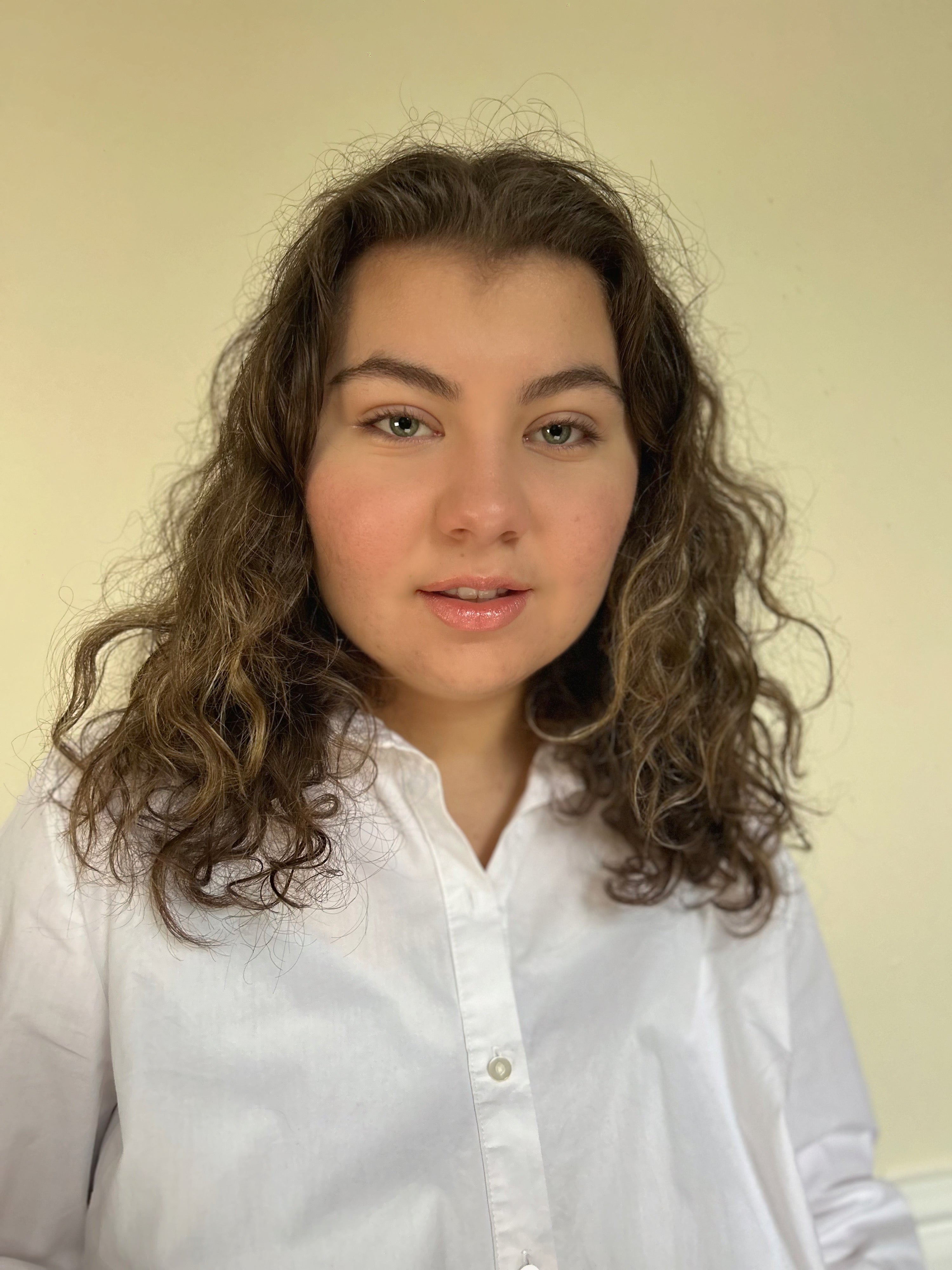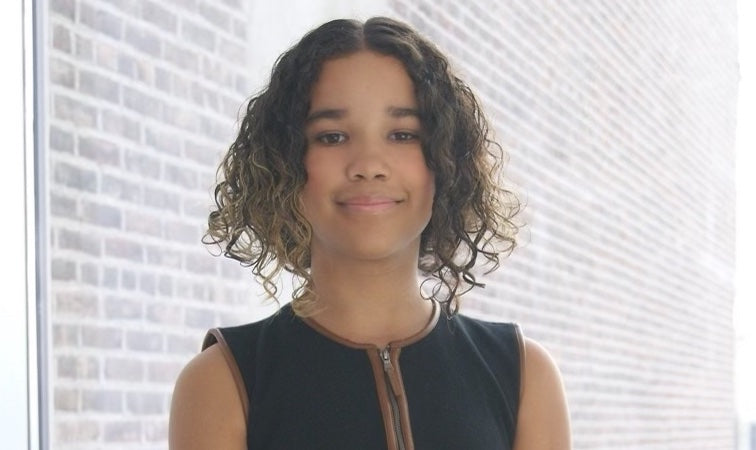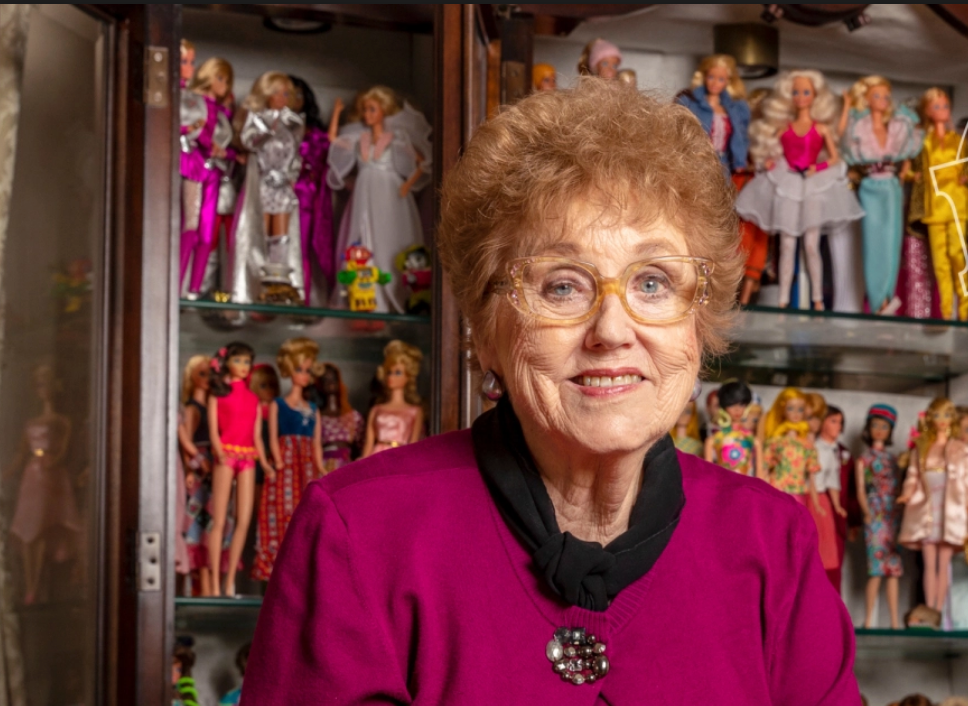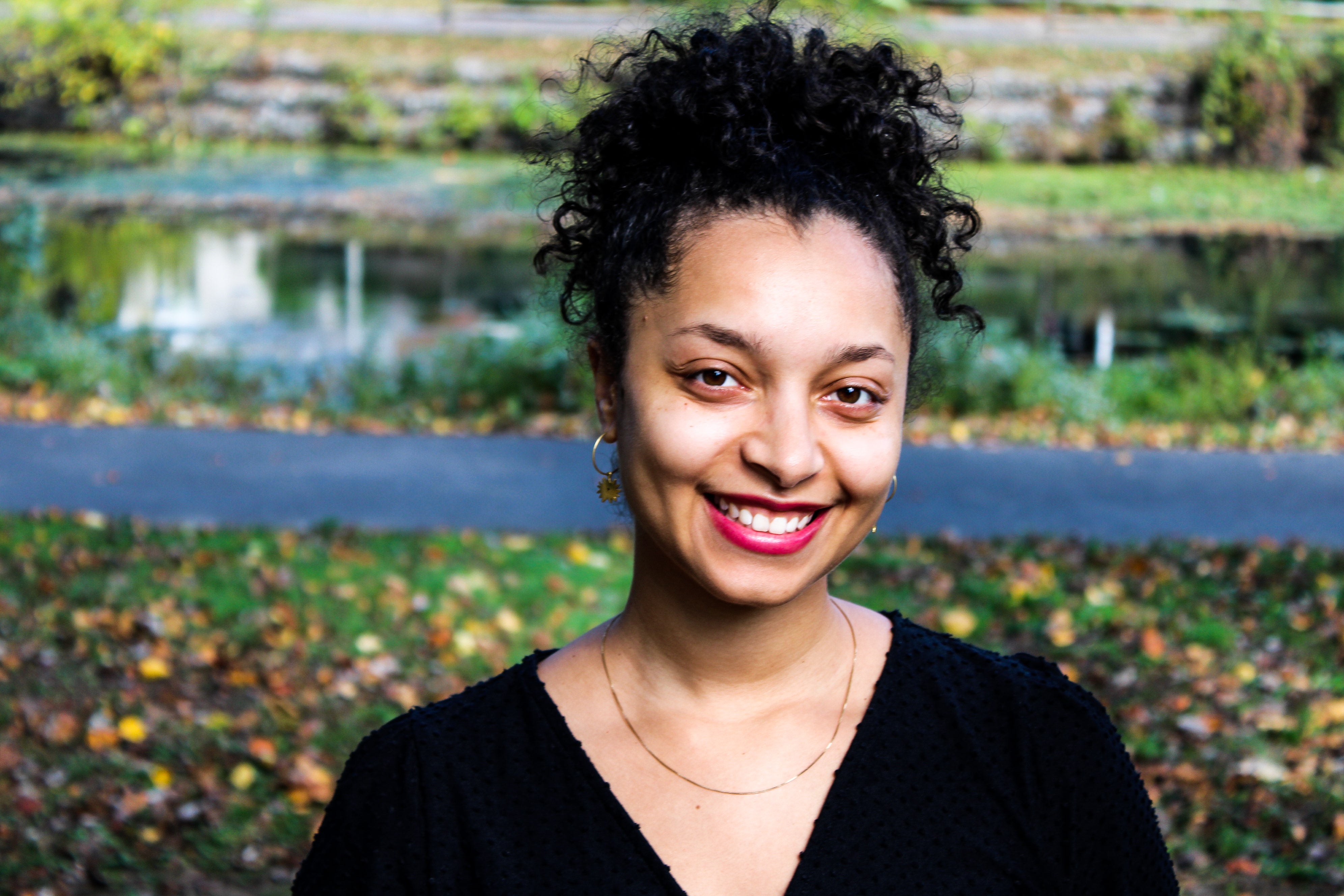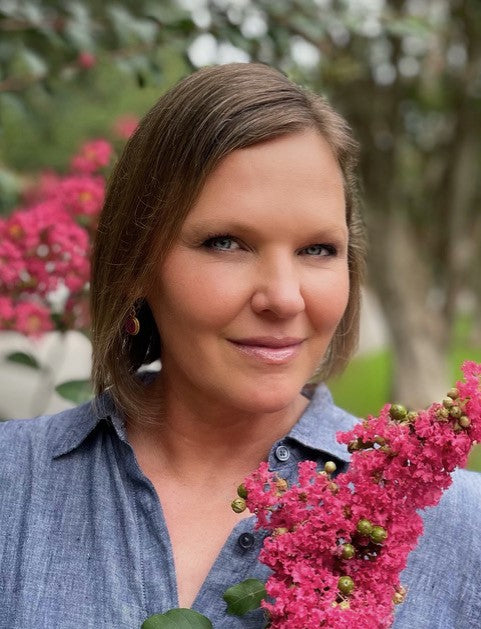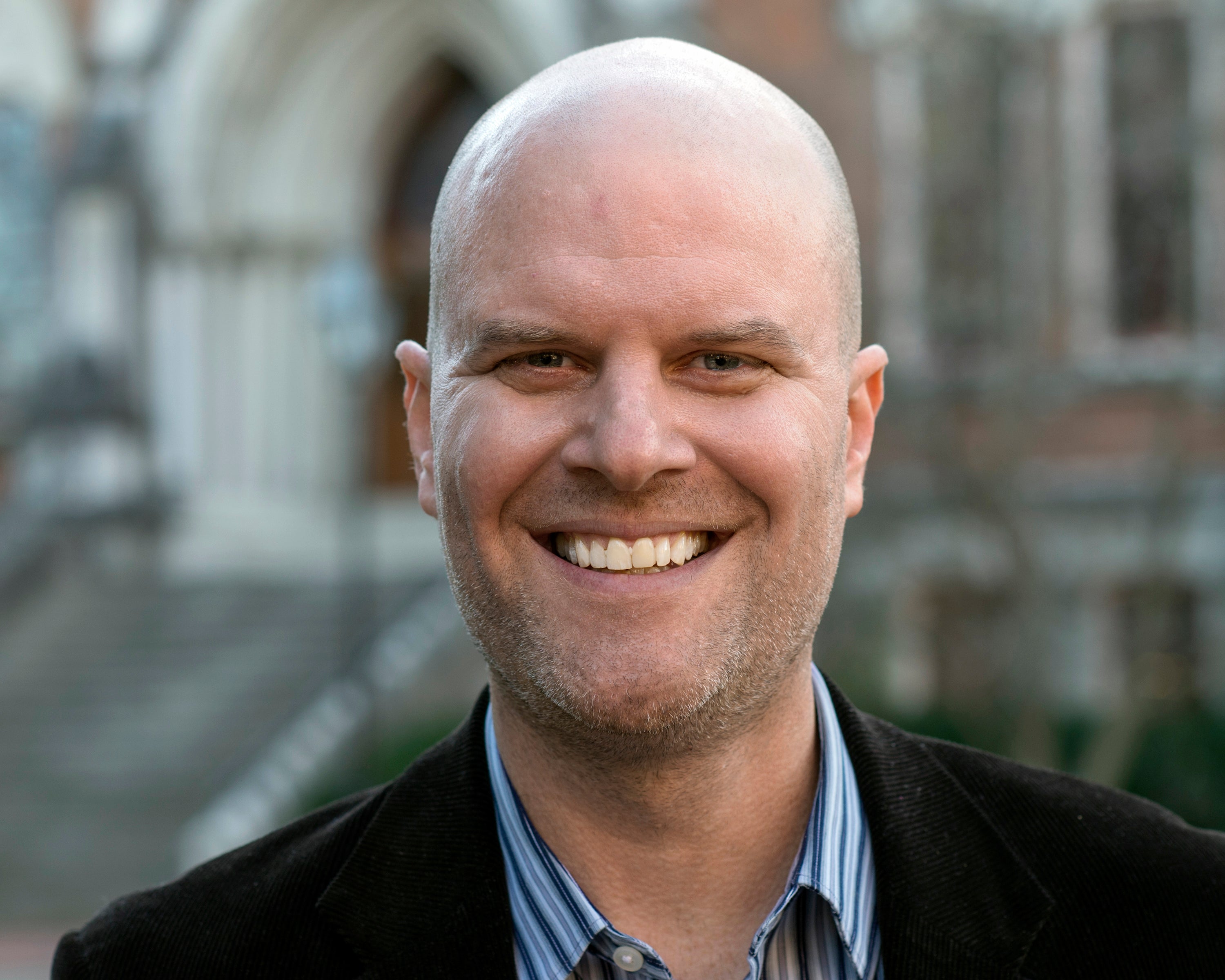Book: A Good Kind of Trouble

Photo Credit: Rod Searcey
Author: Lisa Moore Ramée
Author Bio:
I wanted to tell a story that was for children of color that existed in a world where a lot of the people they interacted with didn't look like them and give them a book that said, "Hey, it's okay, I see you", and get it. And you're not the only one who is hearing comments that show people's unawareness of their biases.
2. Did you experience these same types of pressures growing up yourself?
The experience of not understanding why students started separating down racial lines, was definitely something I experienced and struggled with. Like Shayla, I had friends of different races and I wasn't sure how to navigate keeping those friends while at the same time wanting to enjoy the opportunity to hang out with other Black kids.
There can be such comfort in hanging out with people who "get" it; who get you. At the same time, my older siblings (who had gone to a predominantly Black elementary school) were very harsh about me not being "Black enough." That stung and it made me wonder how Black is defined anyway.
3. Was this book written with a focused emphasis on the Black Lives Matter movement, to show support or a necessary integration since the main character is a Black young woman in the USA?
There were two main reasons for integrated BLM into the book: first, I felt that there was no way to be a Black child in today's world and not be aware of BLM and how it affected you personally and second, (and this was perhaps more important to me) I did want an opportunity to explain BLM to non-Black readers.
I personally witnessed so much confusion about the movement and what it stood for and what it was saying. It was such an obvious thing to me that it was hard to understand the confusion, but I thought if I could incorporate a small love letter for BLM, it would help people not be scared of something that wasn't attacking them.
4. Not being considered “Black enough” is a constant pressure young kids face growing up, for kids struggling with this worry, what are some healthy ways for them to better understand their personal Blackness?
The first thing I would tell these kids is the idea of "Black enough" is completely a false construct. It implies that being Black is a particular way of being and that just isn't true. If you're Black, you're Black, which automatically means you're Black "enough."
As Shayla (the main character in A Good Kind of Trouble) explains to her friends, "No matter how I act, I'm still Black." When we start thinking Black means one thing, it typically means we've bought into that single narrative presented by the media. Listen to music that makes you happy. Read the books that appeal to you. Have the friends you want. Never be ashamed to be Black, and also never be ashamed in your particular taste in things. And never think you have to explain the way you are if it's different from what people expect.
Finally, I would say to read lots of books featuring Black characters that will show you examples of all sorts of Blackness.
5. Despite what the media would tell you, Black people are very diverse and there is a spectrum of Blackness, do you believe we will see a wave of new diverse storytelling of Black culture in the future?
I sure hope so! And I do believe we will start seeing a wider array of stories. This year (2019) there are four other Black writers debuting middle-grade novels (Alicia Williams, Karen Strong, India Hill and Mariama J. Lockington) and while our books all feature a Black female protagonist, they are extremely different. It's something we've said we should do a panel on, because the truth is, as you've stated, the media likes to tell a single narrative of Blackness, and we know this is so untrue and unfair.
I love how Angie Thomas set her second book in the same neighborhood as her first but showed us how even two Black girls from the same neighborhood are going to be so different and have completely different stories.
6. How cool has it been that authors such as Angie Thomas (Author of The Hate U Give) and other prominent Black YA authors have supported your debut novel?
Oh wow, it has been SO cool. And I never expected it, so it made it that much sweeter. One irony about Angie's book, ‘The Hate U Give’, is I wouldn't let myself read it while I was working on ‘A Good Kind of Trouble’, because I knew the book touched on similar subject matters. That being said, I was already a huge fan just by reading her interviews and knowing what she had to say was so important.
When I turned in final pass pages to my editor, I celebrated by reading her book. I was blown away by what a gifted writer she is--and glad I hadn't read it earlier as I probably would've been demoralized knowing I wasn't achieving the same level of success. Jay Coles, I followed on Twitter, but I didn't know at all, and just sent him a message asking if he'd be willing to consider blurbing the book, and he responded so quickly that he would do it.
It was amazing that these successful authors would be so generous with their time. I have found that although the Black writing community is small, we're tremendously supportive of each other. I think there is genuine joy at raising up other authors. People like Dhonielle Clayton and Nic Stone are so successful, but that doesn't stop them from helping not yet established authors.
7. What was your writing process like for this book?
My writing process has always been the same. I start at the beginning and just power through (by the seat of my pants) to the end. Even if I have no clue where the story is going--which is often the case. However, I had to write my next book on deadline and that made me change my process a little.
I still start at the beginning, but if I get to a part where I'm not sure how to write the scene, or even what the scene should be, I give myself permission to say, "More to come here," and then just keep going.
8. Overall, what do you hope readers get from your book?
There's a few things. I hope that Black girls feel seen--especially the ones who sometimes feel like an outsider in the Black world, but I also hope readers of all races walk away with a sense of what the Black Lives Matter movement is, and what it is not.
9. What is your best advice to a struggling aspiring author currently working on their first novel?
Please don't give up. It took me a long time to get an agent. (Over ten years and I queried over a hundred agents.) Many times I considered giving up but what I heard over and over was, it's the writers who persist who will eventually make it. Also, read a TON. Especially in the genre you're hoping to publish in.
And if you find yourself thinking, I don't want to read because everything out there is awful and I'm better than all of that? You're going to have to rethink that attitude! An agent didn't think it was awful. An editor didn't think it was awful. And these are the very people you want to attract to your work, so it may sound harsh, but I'd say, get over yourself. Learn from successful, established authors. (Assuming your goal is to be successful too.)
10. Best advice for getting over writer’s block...
What I do probably wouldn't work for everyone, and maybe isn't even the best advice, but what I do is switch to a different project. I usually am working on at least two books at once and sometimes three or four. If one isn't working then another one usually is. Now that I have deadlines to consider, I may have to relook at this!
11. What’s the best book you have read in 2019 thus far?
Easy question! The best book for 2019 has been Justin Reynold's, The Opposite of Always. I adored this book.
12. Do you plan on writing more books in the future?
I'm working on my second book. It will also be an MG (Middle Grade) contemporary and tells the story of Jenae, a girl who longs to be invisible, but a new friend forces her into the limelight. It's a book about growth (as most MG is) and delivers the message that sometimes the people trying the hardest to be invisible are actually the ones craving to be seen.
Places To Find More From This Author:
Instagram: @leeseray
Twitter: @leeseray
Website: www.lisamooreramee.com
Get Your Copy of A Good Kind of Trouble Today!




